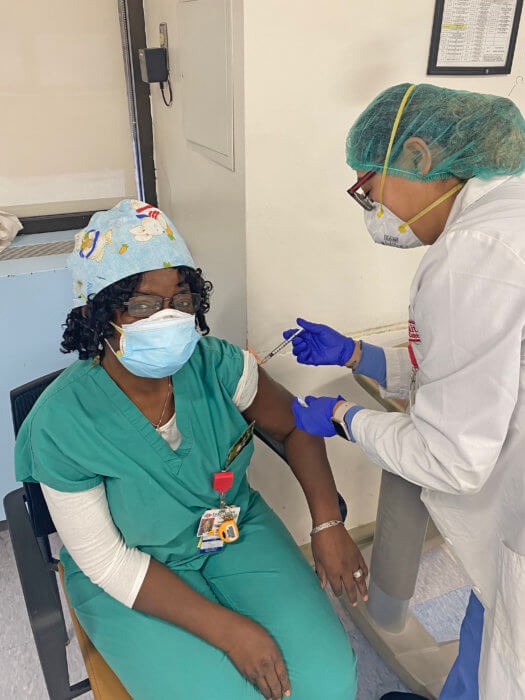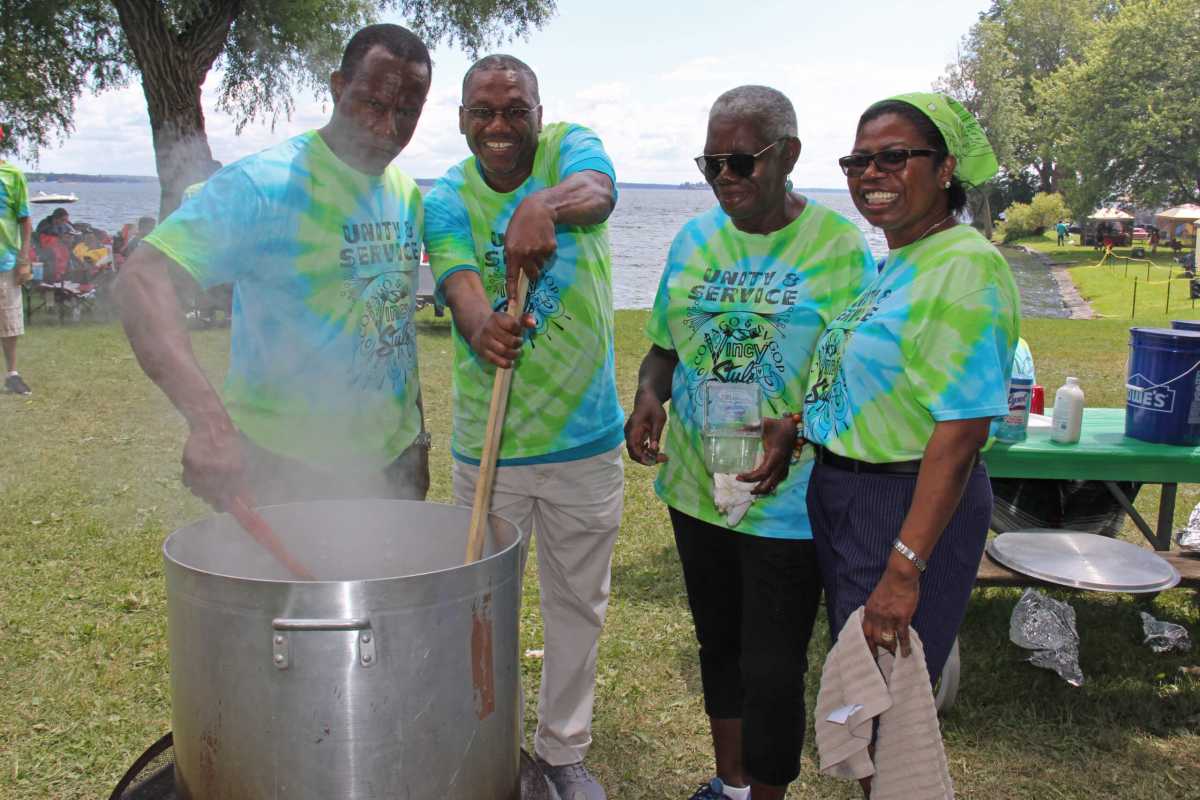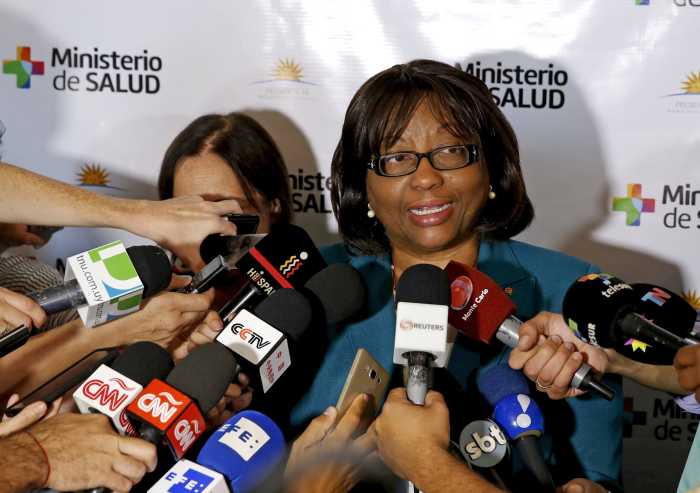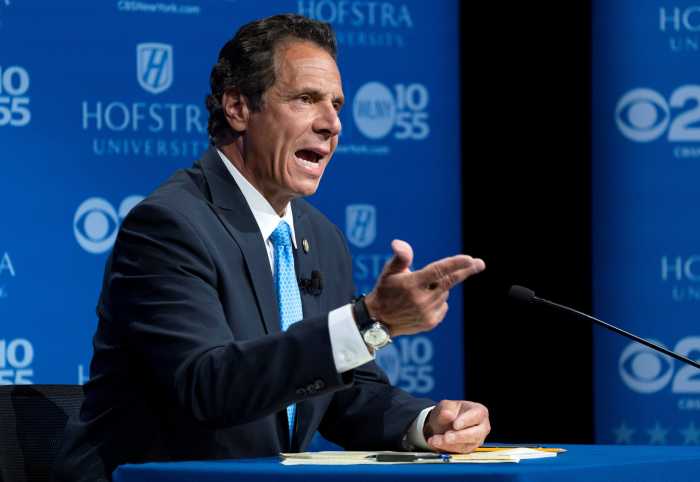Despite misgivings in many countries, at least two Caribbean-born frontline medical doctors in the Caribbean community in Brooklyn are fervently appealing to the public to take the COVID-19 vaccine.
In exclusive interviews with Caribbean Life, Dr. Clifford Young and Dr. Yolande Thomas-Badal, Vincentian and Trinidadian nationals, respectively, said it is important that nationals protect themselves from the raging pandemic.
“This vaccine is the most powerful tool we have against fighting this virus,” said Dr. Young, an attending physician at Cumberland Diagnostic and Treatment Center and an assistant professor at SUNY Downstate College of Medicine, who, in December 2020, contracted the COVID-19 virus.
“COVID-19 is rapidly mutating, but the vaccine has still shown to be our best defense against the virus,” added Dr. Young, a board-certified internist and a fellow of the American College of Physicians, who currently serves as the medical director of Citi Medical of Canarsie, Brooklyn, P.C. “It still prevents the spread of the virus and reduces the number and severity of the complications.
“Without taking the vaccine, we cannot work towards a common goal – protecting ourselves and each other from severe illness and death,” he continued. “Many feel that the state has been trampling our freedoms with vaccine mandates, but we simply cannot risk anymore loss of life when we have the vaccine.
“We must protect ourselves, so we avoid anyone else experiencing my story, or worse, again,” warned Dr. Young, stating that, as a primary care physician, he knew that he was at great risk of contracting the virus in December last year.
“My wife (a registered nurse), the office nurse, and I worked side by side throughout the pandemic. We had taken every pre-caution – wore an N95 mask, kept our home and work clothes separate, and showered in a different bathroom from the rest of our family,” he disclosed.
But, even with our abundance of caution, Dr. Young said they still contracted the virus, “not from a patient but from a family member.”
“The virus soon made its way from myself to my wife, and, lastly, to my son,” he said. “The next couple of weeks were unbearable. From late December of 2020 to late January of 2021, we suffered fevers, body aches, and chest-aching coughs. The symptoms were endless. No amount of callaloo soup or concoctions of ginger, garlic and fever grass would help.
“Even though we came close to calling 911, we were still grateful that we had enough strength to fight through every day of sickness,” Dr. Young added. “Unfortunately, we cannot say the same for every person stricken with COVID-19. Every one of us has a story like this or knows someone who does.”
He said this virus was “particularly ruthless within our community.
“So, what tools do we have to protect ourselves now, masks and vaccines?” he asked.
Dr. Young said this combination has “severely reduced” the number of persons hospitalized and dying from COVID-19.
“We can protect ourselves and those who are vulnerable, those who are immunocompromised, and those who suffer from chronic conditions like diabetes, hypertension, and heart disease,” he said. “Vaccines have proven that they reduce hospitalizations, deaths and transmission within our community. They have prevented countless hospitalizations and deaths, allowing us to resume many of our daily activities.”
Yet, Dr. Young queried why many people still express concerns over the vaccine.
He noted that research into coronavirus vaccines started in 2003, and mRNA vaccine research started in 2015.
“So, we had years of background information,” Dr. Young said. “And, by March of 2020, countries across the world collaborated to develop and produce safe and effective COVID-19 vaccines.”
With millions of vaccine doses given, they physician said the most common side effects are typical of any other vaccine, stating that they include pain and redness at the site of the shot, and mild tiredness, headache and muscle pain.

Dr. Thomas-Badal, an Emergency Room physician at Woodhull Hospital in Brooklyn, noted that the COVID-19 virus has caused a lot of deaths worldwide.
She said that prior to the availability of the vaccine in December 2020, the number of cases of COVID-19 infection increased tremendously.
Dr. Thomas-Badal said many people have lost families, friends, co-workers to COVID-19 infection.
Today, she said the vaccine is available to everyone, adding that it is free.
But, Dr. Thomas-Badal said, despite the availability of the vaccine, and the deaths due to COVID-19 infection, many people still refuse to take the vaccine, “due to fears or misinformation.”
“I encourage people to take the vaccine, because vaccines save lives, and it is our best defense against contracting the COVID-19 infection,” she urged.
Dr. Thomas-Badal said most of the infected COVID-19 patients were seniors with multiple underlying medical conditions, who, most likely, contracted the virus from other family members.
Today, she said the number of cases in seniors has decreased “simply because they have been vaccinated against the COVID-19 virus.
“Interestingly, most of the COVID-19 infected patients who come to the emergency room are unvaccinated young adults, who are hesitant to take the vaccine, due to their fears and or misinformation,” Dr. Thomas-Badal said.
“The COVID-19 vaccine saves lives, it is free, and it is readily available to everyone,” she stressed. “I once again encourage everyone to take the vaccine, because it is much better to be vaccinated than to face hospitalization and possible death.
“In the Caribbean and elsewhere, the cost of hospital care is far greater than the cost of the vaccine,” Dr. Thomas-Badal added. “Everyone should take advantage of this opportunity to be vaccinated against COVID-19 virus.”



























